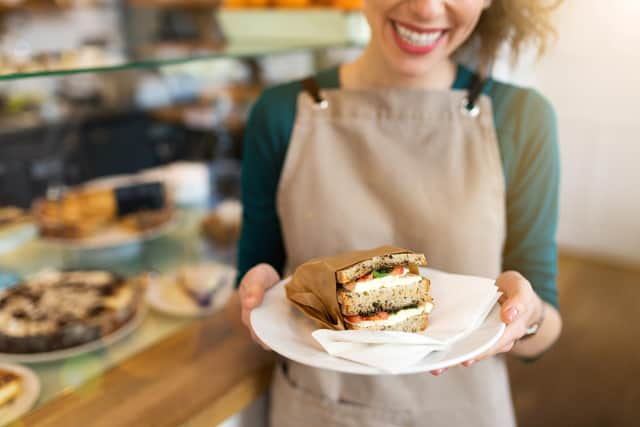Sustainability doesn’t need to be ‘sexy’ to have an impact - Simon McKeating
Within the food and drink industry, conversations around sustainability and net zero are often conflated with discussions on plastic and provenance. They all have a role to play in a broader sustainability agenda for the sector, but for businesses, that can make the prospect of taking the next, or even the first, step in reducing emissions more confusing and daunting.
The reality is that the overwhelming majority of Scottish food and drink businesses are SMEs and many don’t have the capital or the in-house expertise to embark on major sustainability projects.
Advertisement
Hide AdAdvertisement
Hide AdWhat many don’t realise, however, is that neither access to capital nor expertise is necessarily a barrier to building more sustainable, efficient, and future-proofed businesses.


In a recent report, commissioned by Opportunity North East, and supported by the Scotland Food & Drink Partnership’s Net Zero Commitment, it was estimated that commercial food refrigeration accounts for approximately three per cent of the UK’s greenhouse gas (GHG) emissions.
Through relatively inexpensive practical changes to refrigeration practices, like maintenance of existing equipment, ensuring seals are tight and temperatures are optimised, savings in terms of both emissions and running costs can be made.
When the time comes to replace existing equipment, better specification of requirements and appropriate purchasing can make further long-term savings, despite outlay costs for new equipment.
By improving existing equipment use and upgrading the specifications on new equipment, a reduction of between 20 and 50 per cent of energy consumption associated with refrigeration could be achieved.


That means that if every food and drink business in the country took modest steps to take care of existing equipment and carefully consider the required specifications on new equipment, we could cut up to 1.5 per cent of the UK’s overall GHG emissions.
As a contribution to the national effort to reach net zero, that is remarkable impact for practical and seemingly unglamorous sustainability initiatives. If we can replicate those kinds of reductions in other business-critical elements of our industry, and it can be replicated by other major Scottish and UK industries, Net zero ambitions suddenly seem less daunting and more achievable.
With a net zero target of 2045, our food and drink industry, as one of the largest employers and most valuable parts of our economy, has a critical role in putting Scotland on the right path. But that path will take different forms for different businesses.
Advertisement
Hide AdAdvertisement
Hide AdUltimately, the way we produce, manufacture, store, transport and consume food and drink will have to change, but we have an opportunity to create a new system that works for everyone involved.
Making steady, incremental change is available to every business. Every employee has a role to play in embedding new sustainable behaviours and changing how they make decisions.
The cumulative effect of those changes cannot be underestimated, but inbuilding full-scale sustainable practices, such as fleets of electric vehicles or a new packaging line, will only be achievable when it is truly sustainable for businesses to take those steps.
Nobody expects businesses to be perfectly sustainable straight away, but increasingly consumers, buyers, suppliers and talent all do, rightly, expect businesses to be taking steps in the right direction towards net zero.
The road to net zero is long and winding and as the old adage says; every journey begins with a single step.
Simon McKeating, Programme Manager at Scotland Food & Drink Net Zero Commitment.
Comments
Want to join the conversation? Please or to comment on this article.